
Greeley is the home rule municipality city that is the county seat and the most populous municipality of Weld County, Colorado, United States. The city population was 108,795 at the 2020 United States Census, an increase of 17.12% since the 2010 United States Census. Greeley is the tenth most populous city in Colorado. Greeley is the principal city of the Greeley, CO Metropolitan Statistical Area and is a major city of the Front Range Urban Corridor. Greeley is located in northern Colorado and is situated 49 miles (79 km) north-northeast of the Colorado State Capitol in Denver.
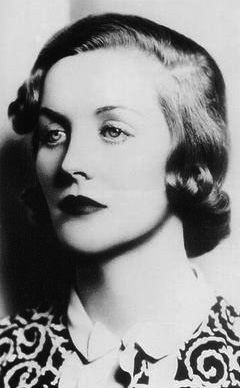
Diana, Lady Mosley, known as Diana Guinness between 1929 and 1936, was a British aristocrat, fascist, writer and editor. She was one of the Mitford sisters and the wife of Oswald Mosley, leader of the British Union of Fascists.
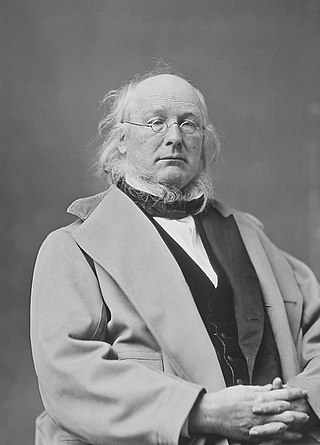
Horace Greeley was an American newspaper editor and publisher who was the founder and editor of the New-York Tribune. Long active in politics, he served briefly as a congressman from New York and was the unsuccessful candidate of the new Liberal Republican Party in the 1872 presidential election against incumbent President Ulysses S. Grant, who won by a landslide.
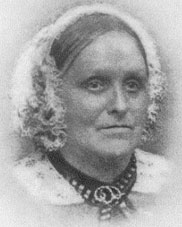
Susanna Moodie was an English-born Canadian author who wrote about her experiences as a settler in Canada, which was a British colony at the time.

Mary Ann Day Brown was the second wife of abolitionist John Brown, leader of a raid on Harpers Ferry, Virginia, which attempted to start a campaign of liberating enslaved people in the South. Married at age 17, Mary raised 5 stepchildren and an additional 13 children born during her marriage. She supported her husband's activities by managing the family farm while he was away, which he often was. Mary and her husband helped enslaved Africans escape slavery via the Underground Railroad. The couple lived in Pennsylvania, Ohio, and in the abolitionist settlement of North Elba, New York. After the execution of her husband, she became a California pioneer.
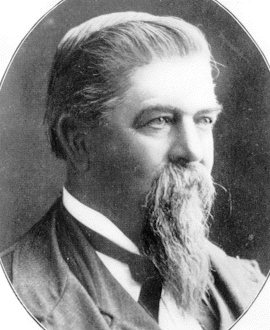
Benjamin Harrison Eaton was an American politician, entrepreneur and agriculturalist in the late 19th and early 20th century. Eaton was a founding officer of the Greeley Colony and was instrumental in the establishment of modern irrigation farming to Northern Colorado. A member of the Republican Party, he served as the fourth Governor of Colorado, from January 1885 to January 1887, with the nickname of the "farmer governor". He was one of the largest land owners in Weld and Larimer counties, at one time owning over ninety 160 acre (0.6 km²) parcels, all watered from canals and reservoirs of his own construction. His projects were influential in helping turn the South Platte River valley into an important agricultural region in the state's economy. The town of Eaton, Colorado in western Weld County is named for him.
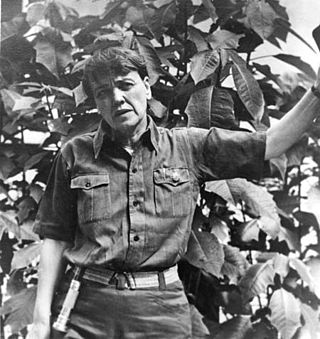
Agnes Smedley was an American journalist, writer, and activist who supported the Indian Independence Movement and the Chinese Communist Revolution. Raised in a poverty-stricken miner's family in Missouri and Colorado, she dramatized the formation of her feminist and socialist consciousness in the autobiographical novel Daughter of Earth (1929).
The Union Colony of Colorado was a 19th-century private enterprise formed to promote agricultural settlements in the South Platte River valley in the Colorado Territory. Organization of the colony began in October 1869 by Nathan Meeker in order to establish a religiously oriented utopian community of "high moral standards". The colony was founded in March 1870 at the site of present-day Greeley, Colorado. Union Colony was financially backed and promoted by New York Tribune editor, Horace Greeley, a prominent advocate of the settlement of the American West. The homesteaded colony greatly advanced irrigation usage in present-day northern Colorado, demonstrating the viability of cultivation at a time when agriculture was emerging as a rival to mining as the principal basis for the territorial economy.
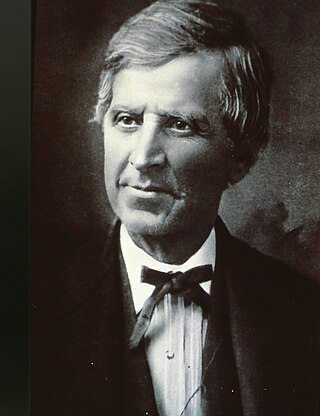
Nathan Cook Meeker was a 19th-century American journalist, homesteader, entrepreneur, and Indian agent for the federal government. He is noted for his founding in 1870 of the Union Colony, a cooperative agricultural colony in present-day Greeley, Colorado.

Sybille Bedford, OBE was a German-born English writer of non-fiction and semi-autobiographical fiction books. She was a recipient of the Golden PEN Award.

The Happy Valley set was a group of mostly British and Anglo-Irish aristocrats and adventurers who settled in the "Happy Valley" region of the Wanjohi Valley, near the Aberdare mountain range, in colonial Kenya between the 1920s and the 1940s. During the 1930s, the group became infamous for its hedonistic, decadent lifestyles and exploits amid reports of drug use and sexual promiscuity.

The Sager orphans were the children of Henry and Naomi Sager. In April 1844 the Sager family took part in the great westward migration and started their journey along the Oregon Trail. During it, both Henry and Naomi died and left their seven children orphaned. Later adopted by Marcus and Narcissa Whitman, missionaries in what is now Washington, they were orphaned a second time, when both their new parents, as well as brothers John and Francis Sager, were killed during the Whitman massacre in November 1847. About 1860 Catherine, the oldest daughter, wrote a first-hand account of their journey across the plains and their life with the Whitmans. Today it is regarded as one of the most authentic accounts of the American westward migration.
Auburn is an unincorporated community in Weld County, Colorado, United States, five miles southeast of Downtown Greeley.
Greeley-Evans Weld County School District 6 is a school district headquartered in Greeley, Colorado, United States. The district serves most of the City of Greeley, the City of Evans, the Town of Garden City, and unincorporated areas in Weld County, including Auburn.

Josephine Meeker, was a teacher and physician at the White River Indian Agency in Colorado Territory, where her father Nathan Meeker was the United States (US) agent. On September 29, 1879, he and 10 of his male employees were killed in a Ute attack, in what became known as the Meeker Massacre. Josephine, her mother Arvilla Meeker, and Mrs. Shadruck Price and her two children were taken captive and held hostage by the Ute tribe for 23 days.

Margaret L. Taylor Curry was an American state parole officer, medical social worker, child welfare worker, and music teacher. In 1952 she became the first female parole officer for the Colorado Department of Corrections. During her 18-year tenure, she was the only female officer supervising adult inmates and parolees. She introduced vocational training, high school equivalency courses, and self-improvement classes to further the rehabilitation of women prisoners. She was inducted into the Colorado Women's Hall of Fame in 1996.

Julia Greeley, OFS, was an African-American philanthropist and Catholic convert. An enslaved woman later freed by the US government, she is known as Denver's "Angel of Charity" because of her aid to countless families in poverty. Her cause for beatification was opened by Archbishop Samuel J. Aquila in 2016.
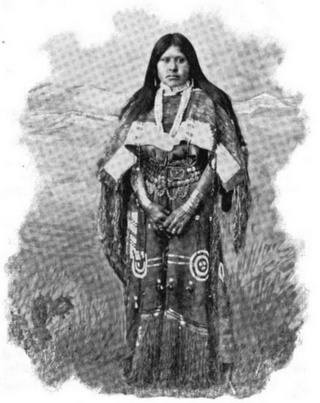
Shawsheen (Shoshine) otherwise known as She-towitch, or Susan, was a Native American woman who was a part of the Tabeguache (Uncompahgre) Ute tribe and sister to Chief Ouray. She is known for her capture by the Cheyenne and Arapaho in 1860 or 1861, her protection and care for Arvilla and Josephine Meeker during their captivity, as well as her role within the politics of her tribe as a female leader alongside her sister-in-law, Chipeta.

The history of slavery in Colorado began centuries before Colorado achieved statehood when Spanish colonists of Santa Fe de Nuevo México (1598–1848) enslaved Native Americans, called Genízaros. Southern Colorado was part of the Spanish territory until 1848. Comanche and Utes raided villages of other indigenous people and enslaved them.
Annie Henry Christian was a colonial pioneer who documented the journey with her husband William Christian and their children westward to Kentucky. Her brother was Patrick Henry, the governor of Virginia. Her sister, Elizabeth Henry Campbell Russell, was a Methodist lay leader. Her letters to family, friends, and business associates provide insight into westward movement of the 18th century America and life in the wilderness. Like Martha Washington and Catharine Flood McCall, she was a rare business woman, whose success was based upon slave labor. They had feme sole status of widows or single women who were able to operate businesses, manage finances, and enter into contracts.















